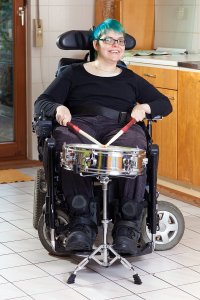Cerebral palsy is a group of neurological disorders. These disorders, which are typically diagnosed in infancy or early childhood, can lead to lifelong disability. Every child with cerebral palsy struggles with a unique set of challenges, which can range from mild to severe. Parents of children with cerebral palsy can visit malpractice lawyers in Baltimore to assess whether the disorder developed because of medical negligence. 
Causes and Risk Factors
The underlying cause of cerebral palsy is a disruption in the normal development of the brain. This typically occurs before birth; however, it may also occur in early childhood. Brain damage can occur because of maternal infections, infant infections, fetal stroke, and oxygen deprivation to the brain. Sometimes, improper prenatal care can contribute to cerebral palsy. For example, an OB/GYN may fail to provide the mother with the necessary vaccinations, or he or she may fail to test for certain infections. During labor and delivery, brain damage caused by oxygen deprivation can occur. Obstetrics staff should monitor the fetal heartrate closely for signs of fetal distress. By performing an emergency C-section, cerebral palsy caused by oxygen deprivation may be prevented. Unfortunately, healthcare providers are sometimes negligent in ordering C-sections in a timely manner.
Symptoms and Complications
Children with cerebral palsy often require a lifetime of care and support. For these medical malpractice cases, a jury award or settlement can allow parents to arrange for the therapy and support their children need. Children with cerebral palsy often have difficulty walking due to poor muscle tone. They may suffer from involuntary movements, difficulty swallowing, speech delays, and fine motor skill impairment. Sometimes, individuals with cerebral palsy display intellectual disabilities, psychiatric conditions, seizures, oral diseases, vision and hearing impairment, and abnormal pain perceptions.
Support and Coping Approaches
In addition to arranging medical treatments and therapy sessions with a jury award or settlement, parents can help their children enjoy an enhanced quality of life by facilitating their independence. Although it may be tempting to do everything for the child, it’s important to let the child perform any simple task he or she is capable of. Parents and siblings of children with cerebral palsy may also benefit from joining a support group. At a support group, families can develop positive coping techniques and learn how to be effective advocates for their children.